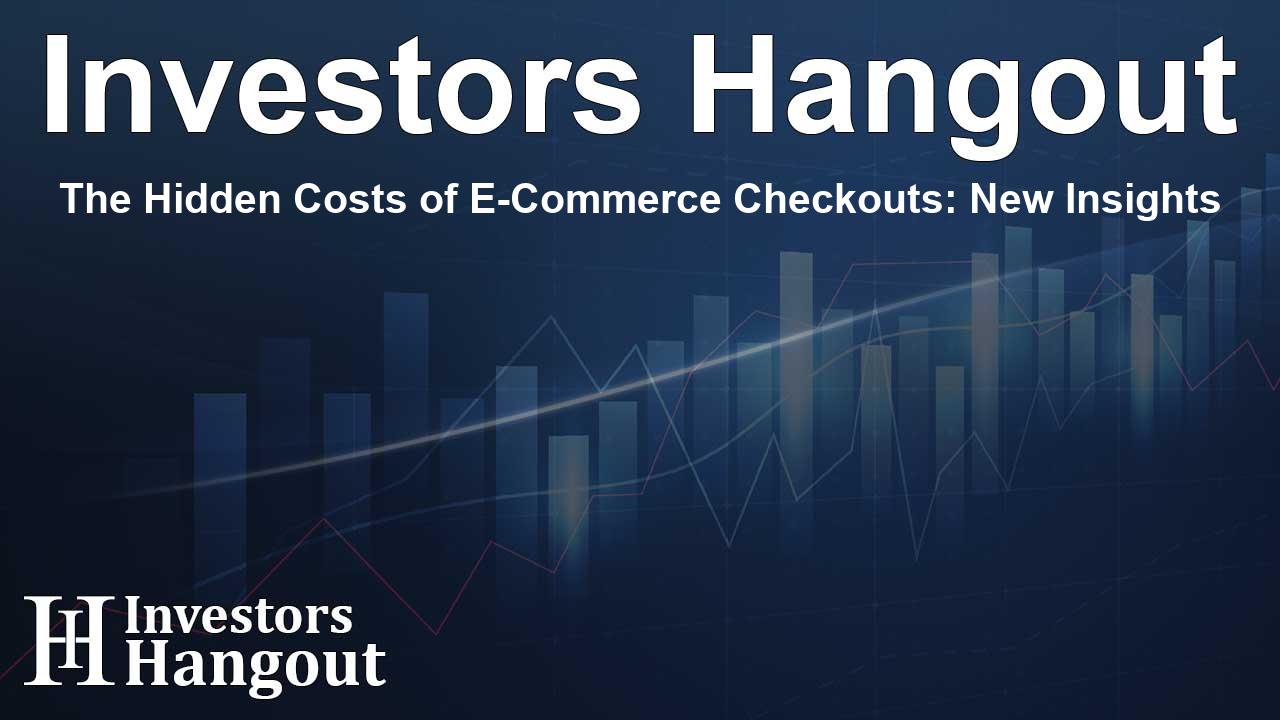The Hidden Costs of E-Commerce Checkouts: New Insights

The Challenges Facing E-Commerce Checkouts
Recent findings reveal a concerning trend among online retail companies: many are losing substantial amounts of money every year at the checkout stage. A survey conducted on behalf of Spreedly indicates that one in four businesses faces annual losses exceeding $1 million during this critical part of the shopping experience.
Insights from Industry Executives
According to U.S. executives, a significant majority anticipate that by 2027, artificial intelligence (AI) will play a crucial role in optimizing the payment process. However, alongside this optimism, 83% believe that the current online checkout mechanisms are under strain. The increasing reliance on technology introduces potential risks that could exacerbate existing issues in the payment flow.
Key Drivers of Financial Losses
The survey highlights that the primary reasons for these financial setbacks are not necessarily rooted in fraud. Instead, they stem from consumer behaviors. For instance, customer abandonment accounts for 29% of the losses, while unsupported payment methods contribute another 28%. These issues reflect a need for companies to enhance the checkout experience.
The Role of AI in Payment Optimization
While AI holds promise for revolutionizing the payment landscape, executives express concerns regarding its implementation. As they integrate AI into their systems, there is apprehension that it might complicate already fragile online checkout flows. Executives are keenly aware that transparency in customer identification could be compromised, and regulatory risks might surface, impacting revenue generation.
Concerns about AI Implementation
Insights gathered from the survey reveal multiple concerns tied to AI, including:
- Loss of transparency about customer identities (23%)
- Compliance and regulatory risks (21%)
- False positives causing lost revenue (20%)
- Restricted marketing capabilities (22%)
- Minimal concerns expressed by 15% of respondents
These risks suggest that while integrating AI can upgrade payment systems, it needs to be done carefully to mitigate potential pitfalls.
An E-Commerce Shift in Perspectives
The survey also emphasizes the generational divide in attitudes towards AI's role in payments. Millennial executives tend to view AI optimistically, while Gen Z leaders stress consumer trust as a pivotal issue. This generational viewpoint may shape how companies approach the evolving landscape of online payments.
Technology's Influence on Payment Methods
Interestingly, the landscape of payment methods is also changing rapidly. Retailers are adopting digital wallets and bank-based payments at an accelerated pace to align with shifting consumer preferences. Furthermore, industries such as travel report severe challenges concerning cross-border payments, more than double the struggles faced by other sectors.
Engineering Resources and Checkout Maintenance
The survey findings also portray the reality of engineering resource allocation among companies. Many executives indicate that a significant portion of their engineering teams, approximately 25%, is dedicated to maintaining checkout systems. This translates to an equivalent of ten full-time engineers within a 40-member team focused squarely on optimizing the payment mechanism.
Spreedly's Role in the Payment Landscape
Peter Dougherty, the President of Spreedly, notes that while the potential for AI to transform payments is immense, current engineering demands may overshadow these advancements. Spreedly’s open payments platform aims to create value and address loss without necessitating the continual expansion of engineering teams.
Looking to the Future of E-Commerce Payments
As companies adapt to these emerging trends in payment processing, the insights gained from the survey highlight the importance of refining the online checkout experience. By addressing abandonment rates and integrating diverse payment options, they can work towards reducing financial losses and unlocking new growth opportunities.
Frequently Asked Questions
What were the main findings from the survey on e-commerce checkouts?
The survey revealed that one in four companies loses over $1 million annually at checkout, primarily due to customer abandonment and unsupported payment methods.
How do generational views affect perceptions of AI in payments?
Millennial executives generally embrace AI's potential, while Gen Z leaders prioritize issues related to consumer trust and disintermediation.
What are the risks associated with integrating AI into payment systems?
Risks include loss of transparency regarding customer identities, regulatory challenges, and potential false positives affecting revenue.
What percentage of engineering resources is allocated to maintaining checkout systems?
Survey results indicate that many companies allocate about 25% of their engineering resources to maintain and optimize checkout processes.
How can Spreedly help companies improve their payment systems?
Spreedly's open payments platform provides tools to enhance payment systems, aiming to reduce losses without the need for increasing engineering teams.
About The Author
Contact Olivia Taylor privately here. Or send an email with ATTN: Olivia Taylor as the subject to contact@investorshangout.com.
About Investors Hangout
Investors Hangout is a leading online stock forum for financial discussion and learning, offering a wide range of free tools and resources. It draws in traders of all levels, who exchange market knowledge, investigate trading tactics, and keep an eye on industry developments in real time. Featuring financial articles, stock message boards, quotes, charts, company profiles, and live news updates. Through cooperative learning and a wealth of informational resources, it helps users from novices creating their first portfolios to experts honing their techniques. Join Investors Hangout today: https://investorshangout.com/
The content of this article is based on factual, publicly available information and does not represent legal, financial, or investment advice. Investors Hangout does not offer financial advice, and the author is not a licensed financial advisor. Consult a qualified advisor before making any financial or investment decisions based on this article. This article should not be considered advice to purchase, sell, or hold any securities or other investments. If any of the material provided here is inaccurate, please contact us for corrections.
